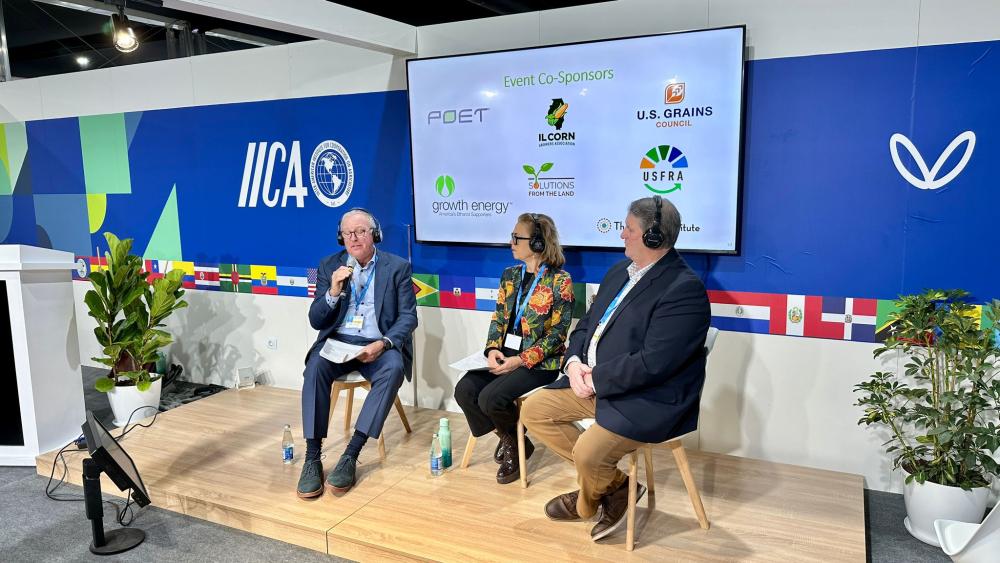Renewable biofuels not only contribute to mitigation, but also have a positive impact on public health, stated specialists at the IICA Pavilion at COP29

Baku, Azerbaijan, 14 November 2024 (IICA) – Renewable biofuels can make a significant contribution not only to climate change mitigation but also to public health, explained civil society and academic representatives during COP29, where thousands gathered in Baku, Azerbaijan.
The Home of Sustainable Agriculture of the Americas, a pavilion set up for the third consecutive year by the Inter-American Institute for Cooperation on Agriculture (IICA) at the largest global forum for environmental discussion, was the venue for a conversation organized by Solutions from the Land, drawing significant attention at COP29.
The discussion was led by Ernie Shea, President of Solutions from the Land, whose team includes industry leaders and academic experts in agriculture, forestry, and conservation. Their mission is to promote nature-based solutions for food security, economic development, climate change mitigation, and biodiversity conservation.
Shea emphasized that in addition to reducing greenhouse gas emissions, renewable biofuel have recently shown benefits for public health. “Renewable fuels make a decisive contribution to pollution reduction, and the opportunities for agricultural production are vast,” said Shea.
Manuel Otero, IICA Director General, opened the debate, underscoring the importance of bringing the topic of biofuels to the Conference of the Parties to the United Nations Framework Convention on Climate Change. He highlighted the economic and social significance of biofuels for various Latin American countries. “Today, agriculture is key to global energy security,” he added.
In support of the Paris agreement
Linda Schmid, from the U.S. Grains Council, highlighted that ethanol should be considered by countries as part of their greenhouse gas emissions reduction commitments under the Paris Agreement.
“In the United States, we have reduced 140 million tons of carbon dioxide equivalent in recent years thanks to a 10% ethanol blend in petroleum-derived fuels. This is crucial as there are many ways to contribute to climate change mitigation, and policymakers need to pay attention to renewable biofuels,” she stated.
Michael Crinion, a U.S. dairy farmer and President of US Farmers and Ranchers in Action (USFRA), noted that he and other farmers have been particularly active in reducing their carbon footprint.
“In our dairy farm, we have lowered our emissions and resource use by 19% compared to the average through various practices,” he revealed.
Gail Dennison, a scientist from the Hormel Institute at the University of Minnesota, provided details on research that this academic institution has been conducting with various partners in the United States over the past two years. Dennison revealed that fossil fuels impact the progression and treatment of cancer, according to data that will be published soon.
More information:
Institutional Communication Division.
comunicacion.institucional@iica.int